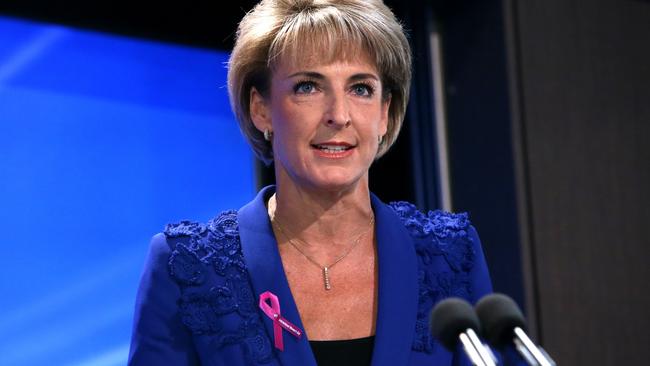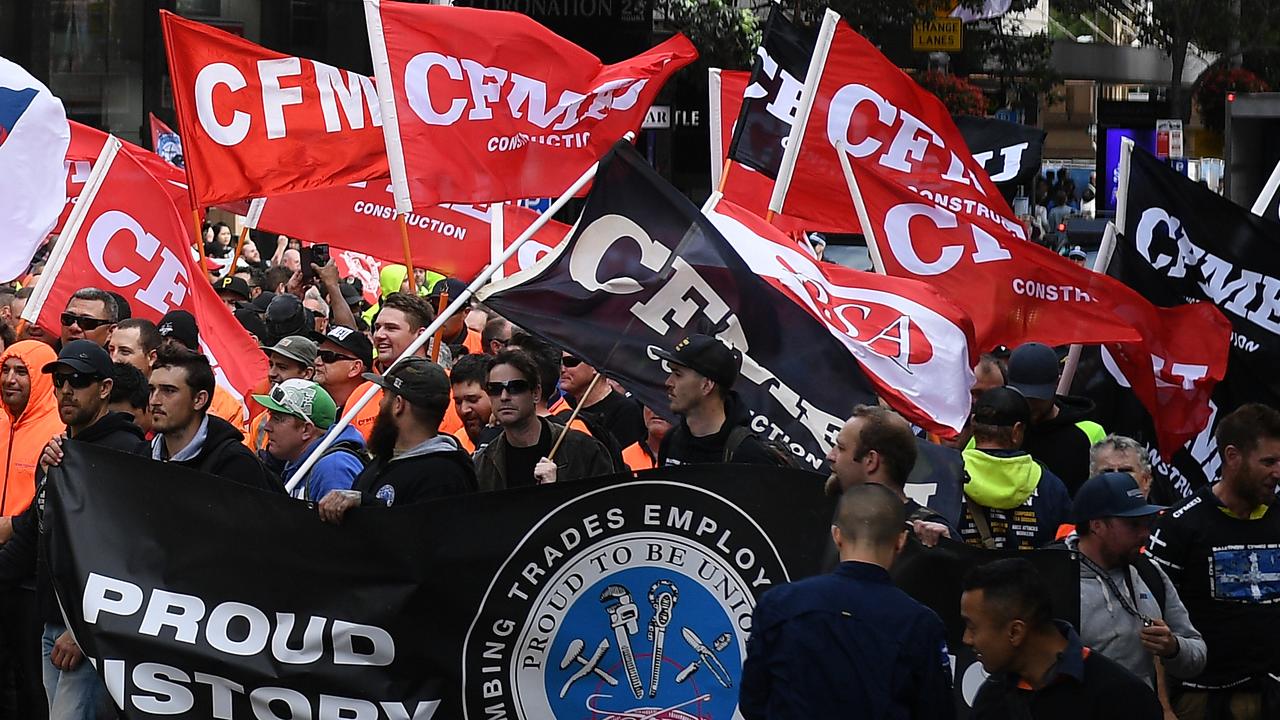Productivity Commission: abolish Sunday penalty rates
Unions vow to battle the government if it acts on the Productivity Commission’s push for one weekend penalty rate.

A sweeping review of workplace laws has proposed a new form of industrial agreement and raised the prospect of handing clearer retaliatory steps to businesses in response to industrial action undertaken by workers.
The 12-month Productivity Commission review into the industrial regime has recommended that hospitality and retail workers should be subject to one weekend penalty rate. It has also proposed making it unlawful for enterprise agreements to restrict the ability of businesses to use independent contractors or labour hire workers.
The Productivity Commission’s final report has recommended measures to expand the use of individual flexibility arrangements and for employers to more easily take on workers from businesses they have recently purchased.
The government’s main economic advisory body has also recommended the maximum penalties for unlawful industrial action be increased to about three times their current level to serve as a more effective deterrent.
However, the review has not embraced fundamental industrial relations reform and reaffirmed it has taken a “repair” and not a “replacement” mentality to the Fair Work regime introduced by Labor.
The review has proposed that Sunday penalty rates be brought into with Saturday rates for those in the hospitality, entertainment, retail and restaurant industries but proposed no change to overtime or shift loadings.
The limited changes to penalty rates had been widely expected after being canvassed in the interim report in August.
Employment Minister Michaelia Cash said the setting of penalty rates would remain a matter for the industrial umpire.
She flagged a series of roundtables early next year with social welfare groups, unions, employers and women’s groups to discuss the prospect of sensible changes to the system.
“The government has no plans to change penalty rates,” Senator Cash said in Perth.
“Penalty rates are set by the independent fair work commission just as interest rates are set by another independent body.
“Why would the government set penalty rates? It’s like asking the government to set interest rates.
“We will now carefully consider the review’s recommendations and the final report. If there is a case for sensible and fair changes to the Fair Work framework these will be clearly outlined and they will be taken to the next election and we will seek a mandate from the Australian people.”
The Productivity Commission review has proposed a number of contentious changes including replacing the better off overall test with a new no-disadvantage test and the introduction of a new “enterprise contract” allowing employers to vary award conditions.
The return to a no-disadvantage test would lower the bar for the approval of enterprise agreements and the proposed enterprise contracts. It would mean workers would no longer have to be “better of overall” — just not worse-off when compared to the relevant industry award.
The “enterprise contract” would be offered to workers by employers as a condition of employment and existing workers would be able to opt-in.
The enterprise contract would last for three years and be provided to the Fair Work Commission. Workers would be given a statement setting out how the contract met the proposed no-disadvantage test.
On unfair dismissal, the report has proposed that procedural errors made by employers in the dismissal process should not lead to the reinstatement of workers or to the compensation of former employees — a key issue for business.
Employees would only receive compensation if they had been dismissed without reasonable evidence of persistent underperformance.
The report also says the Fair Work Act should be changed to “more explicitly allow employers to engage in more graduated forms of protected industrial action in response to employee industrial action.”
It suggests that employer response actions should include the implementation of bans on overtime, reduced hours of work and instructions for workers to perform only a portion of their normal work functions.
The final productivity commission report has also handed the government the option of making significant changes to the industrial umpire by overhauling the process for appointing commissioners.
The conduct of commissioners has become an issue of political contention after Fair Work vice-president Michael Lawler took more than nine months of sick leave while on full pay at a salary of $435,000 a year.
Mr Lawler used some of his time on leave to assist in the legal defence of his partner, the disgraced former union boss Kathy Jackson, and was reprimanded by Fair Work Commission President Iain Ross for damaging the standing of the industrial umpire.
The Productivity Commission has now proposed that the government change the appointment process for commissioners, recommending that an independent panel draw up a shortlist of possible candidates with the Employment Minister selecting new appointments from the shortlist.
The Productivity Commission has proposed amending the Fair Work Act to strengthen the ability of the President, Justice Ross, to “oblige members to co-operate in seeking to meet the standards set by the President and the Fair Work Commission’s Member code of conduct.”
It has also proposed that Commissioners enjoy no more than a ten year term.
The operation of the industrial umpire would also be subjected to greater transparency with the Productivity Commission proposing that it publish more “detailed information about conciliation outcomes and processes” and establish an independent performance review.
Labor’s workplace spokesman Brendan O’Connor said the proposed change to hospitality and retail penalty rates would significantly impact household budgets and should be rejected immediately. “This report is Malcolm Turnbull’s gift that no worker wants for Christmas,” he told reporters in Melbourne.
Despite Senator Cash’s claim it was an independent report, Mr O’Connor said it was commissioned by the government, which directed how it should be conducted.
Unions threaten ‘industrial relations fight’
Unions have accused the Turnbull Government of “hiding behind the Fair Work Commission” by leaving it to the industrial tribunal to decide if Sunday penalty rates should be cut.
The ACTU threatened “the biggest industrial relations fight over workers’ pay and conditions since Work Choices” if the Coalition intervenes to align Saturday and Sunday penalty rates following the Productivity Commission’s final recommendations, unveiled today.
Hospitality union United Voice called on Mr Turnbull to “set the record straight on where his Government stands”.
The government said it had no plans to intervene in Fair Work’s four-yearly review of penalty rates, which is not expected to conclude until later next year.
But David McElrea, assistant national secretary of United Voice, said that “workers across the country (were) waiting anxiously to hear if their wages will be cut”.
“Prime Minister Turnbull has said repeatedly people should not be worse off under any changes to the system.
“It’s not good enough for him or his Minister, Michaelia Cash, to hide behind the Fair Work Commission.
“Australia’s two million hospitality and retail workers and their families deserve better from the Prime Minister of this country.”
Tourism industry spokesman Martin Ferguson said the union movement was attempting to hijack the process that “Julia Gillard invented”.
“If it’s appropriate for the union movement to apply to the Commission to review wages and entitlement why is it wrong for the government or an employer group to do the same?”
“It can’t be a one-way street, where the union movement has the right seek a review, but an employer group can’t.”
Mr Ferguson, a former leader of the ACTU, stressed that “the employers’ application to the Fair Work Commission is not about penalty rates it is about making them more relevant to the 21st century, opening up the possibility of greater employment, especially for women and casuals”.
Aligning Saturday and Sunday rates “could lead to more pro rata entitlements and more permanent employment …as our economy transitions more to a services sector,” he said.
“It’s time the union movement recognised that the nature of society in 2015 is entirely different to that which saw Sunday as sacrosanct in the 1950s , 60s and so on ... People expect services to be provided every day of the year … and the current system needs review.
“This is about having Fair Work review this through the legal tribunal, the framework imposed by Julia Gillard.
“People expect services to be provided every day of the year… and the current system needs review.”
ACTU national secretary Dave Oliver said the Productivity Commission’s report “is a dying legacy of Tony Abbott’s divisive approach to government and politics and his ideological war with Australian workers, which Malcolm Turnbull must reject.
“Make no mistake, if the Prime Minister accepts these recommendations, he will be starting the biggest industrial relations fight over workers’ pay and conditions since Work Choices.”
The union representing retail and fast food workers said it was ridiculous to say that Sunday was no longer important and that employees shouldn’t be compensated.
“If the prime minister adopts these recommendations, he’ll be knowingly making life incredibly difficult for hundreds of thousands of families across the country,” the Shop Distributive and Allied Employees Association’s national secretary Gerard Dwyer said.
But the Australian Retailers Association said the recommendation around weekend penalty rates was an “important step” in the recognition that rates were not viable for employers.



